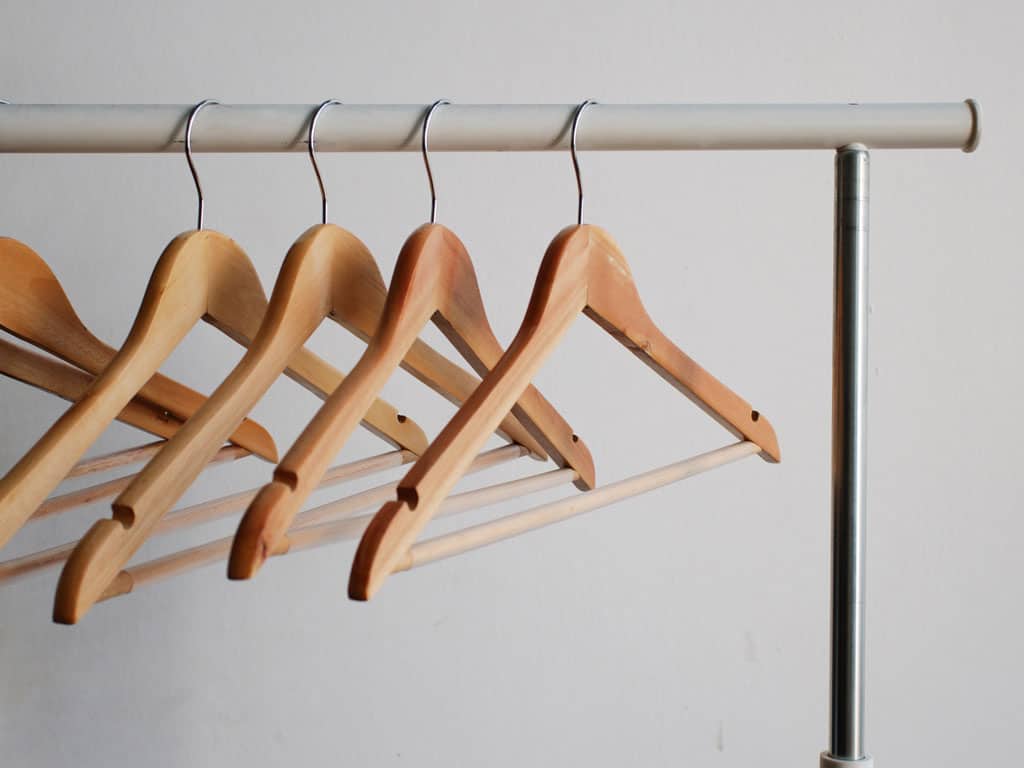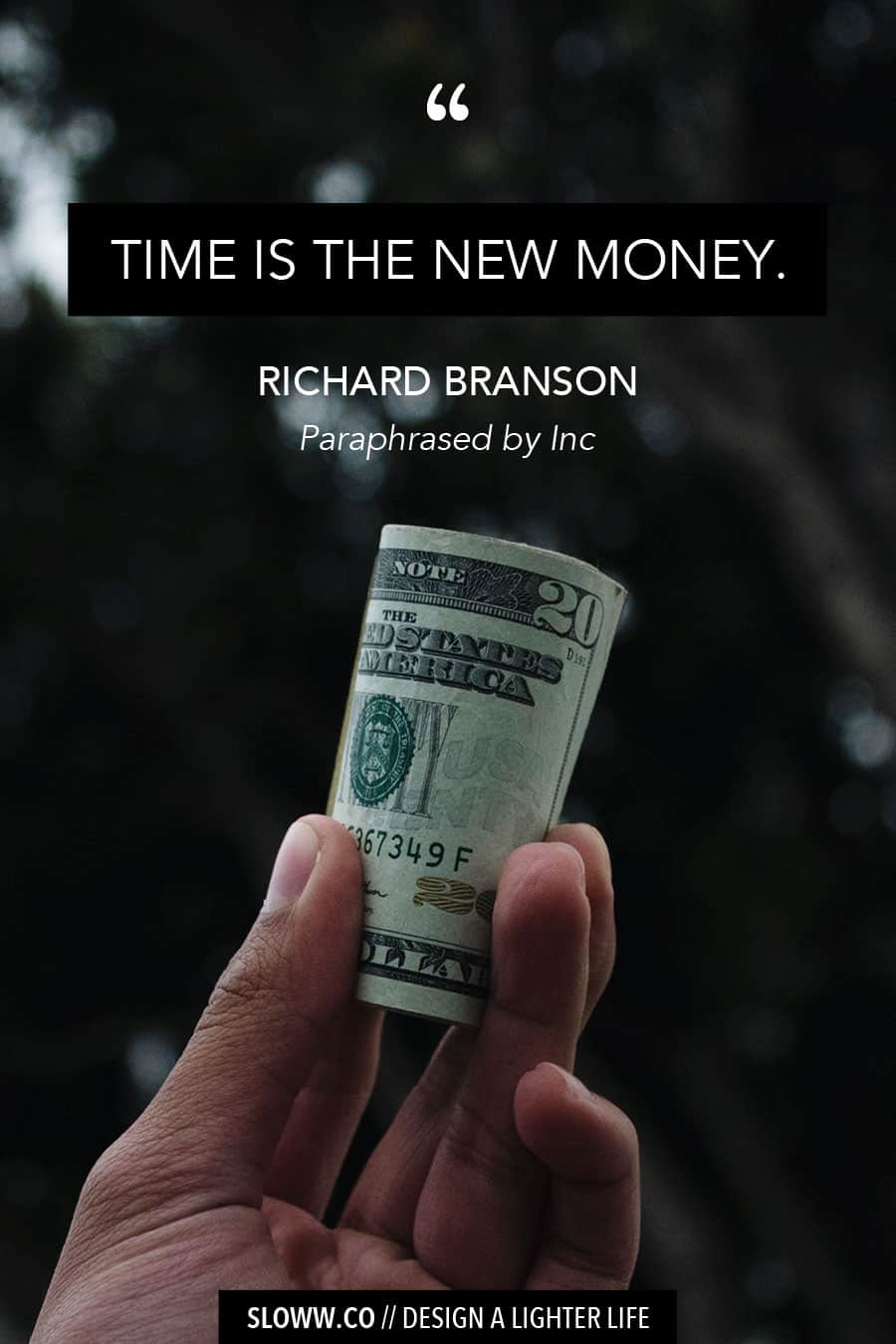So, it turns out I just completed a “buy nothing year” with clothing—including shoes, accessories, everything.
I’ve written a couple progress posts on this topic below:
- How Minimalism Helped Me Stop Buying Clothes in 12 of the Last 16 Months
- Oops Minimalism: How I Spent $0 on Clothing for 6 Months Without Trying
After taking a look at our recent monthly expenses, I realized that I’ve now spent $0 on clothing in 19 of the last 23 months as well as completed a consecutive year of no clothing spending.
How is this possible?

An Overview of my Buy Nothing Year (also called No Buy Year, No Spend Challenge, No Shopping Year, or Shopping Ban)
“Until you make peace with who you are, you’ll never be content with what you have.” ― Doris Mortman
In my previous posts, I referred to this as “oops minimalism” because I didn’t intentionally set out to not buy anything. It just naturally happened as I’ve downshifted to slow living and voluntary simplicity.
In 2017, clothing was our household’s 5th highest spending category after home, taxes, food, and cars. Clothing cost us more than other categories like our dogs, entertainment, side business expenses, utilities, phone and Internet, health-related expenses, and other hobbies. I’m also highly attuned to clothing because I spent the last 4 years working in the apparel industry before leaving my job in May. So, this seemed like a natural category to cut back spending in 2018. I just didn’t realize I would cut all the way back.
When I really think about it, here’s my #1 takeaway if you want to be successful in a challenge like this:
Yes, the spacing is intentional. Understanding your needs vs wants is important, but what is the one thing you need more than anything else? For me, that’s subtracting the superficial in life—attempting to reduce myself to zero to meet life “face to face.” I feel like I need to own my time and spend it executing my purpose. Saving my money is a tool to allow me to do that. And, whenever the going got tough and I thought about buying something during the year, I reminded myself of that.
- “Your freedom is more important than money. It is better to live the kind of life you want than to earn more and be constrained. Don’t sell your freedom.” — Haemin Sunim
What is your main motivation? What is your “why” for doing it? What do you need more than your wants?
- “If you worship money and things — if they are where you tap real meaning in life — then you will never have enough. Never feel you have enough…On one level, we all know this stuff already…The trick is keeping the truth up-front in daily consciousness.” ― David Foster Wallace
5 Things I Learned from my Buy Nothing Year
1. There’s very little that you actually need: Realize that nothing you buy is going to make you a more complete or better human:
- “You have succeeded in life when all you really want is only what you really need.” — Vernon Howard
2. Keeping shopping cues “out of sight, out of mind” will help you keep the habit: Aristotle is quoted as saying, “Through discipline comes freedom.” I agree, but sometimes you need to do more than just rely on your own self-discipline. I attribute a lot of my success with no spending to eliminating shopping cues: deleting all shopping apps from my phone, unsubscribing from all clothing brand emails, unfollowing brands on social media. I’ve realized my personality is very “all or nothing,” so this approach has helped me by keeping shopping “out of sight, out of mind.” After a short period of time, I just stopped thinking about shopping. My approach going forward will be to group shopping needs into a few intentional activities throughout the year.
- “I am complete, as are you, even in an empty room. The stuff, then, only augments that which is already whole.” — Joshua Fields Millburn, The Minimalists
3. You become “immune” to advertising: Having spent the last decade in professional marketing and advertising jobs, I know all the tricks of the trade. I’ve also studied enough about human psychology, buying behavior, and irrationality to understand how advertising affects our minds. By committing to something like no spending, it becomes almost like preventive health for advertising. There’s nothing the advertising can say or do to get you to buy.
- “The reason advertising works on most of us is that we feel there is something missing, that if we could only do or have X we could be happier, that we need whatever happiness they’re offering. If instead we could find completeness, find happiness, find contentedness … advertising wouldn’t work. We’d say, ‘Thanks, but pass.’” — Leo Babauta, Zen Habits
4. You save a ton of money—but more importantly, TIME—over the course of a year: Most people think a $20 purchase here and a $40 purchase there are no big deal, but that can (and will) add up to hundreds or thousands of dollars over the course of a year (and a bad case of lifestyle inflation). What else could you spend that money on, or better yet, what could you save that money to do (hint: FIRE: Financial Independence Retire Early)? To me, the time saved is more important than money. Shopping takes time. Just like the individual purchases of $20 and $40, most people don’t think about the 20 minutes here and 40 minutes there spent shopping—again totaling hundreds or thousands of minutes over the course of a year. What would you rather be spending your non-stoppable, non-renewable time on? As I mentioned in a previous post, the most underrated byproduct of minimalism is having more time—by eliminating escapism through shopping, you free up time for the things that matter most to you.
- “Time is the new money.” — Richard Branson (paraphrased by Inc)
5. You begin to craft your own personal definition of “enough”: It’s all about balance. Enough said.
- “There are two ways to get enough. One is to continue to accumulate more and more. The other is to desire less.” ― G.K. Chesterton
Getting Started: If you’re struggling with decluttering (or too overwhelmed to even start), try a shopping ban for a period of time. That will stop the flow of new things entering your home. My recommendation is to start with just one category (like clothing) instead of a shopping ban on almost all spending categories cold turkey. What you’ll notice is that the one category you pick begins to rub off on other things because the mindset is there. Good luck!





